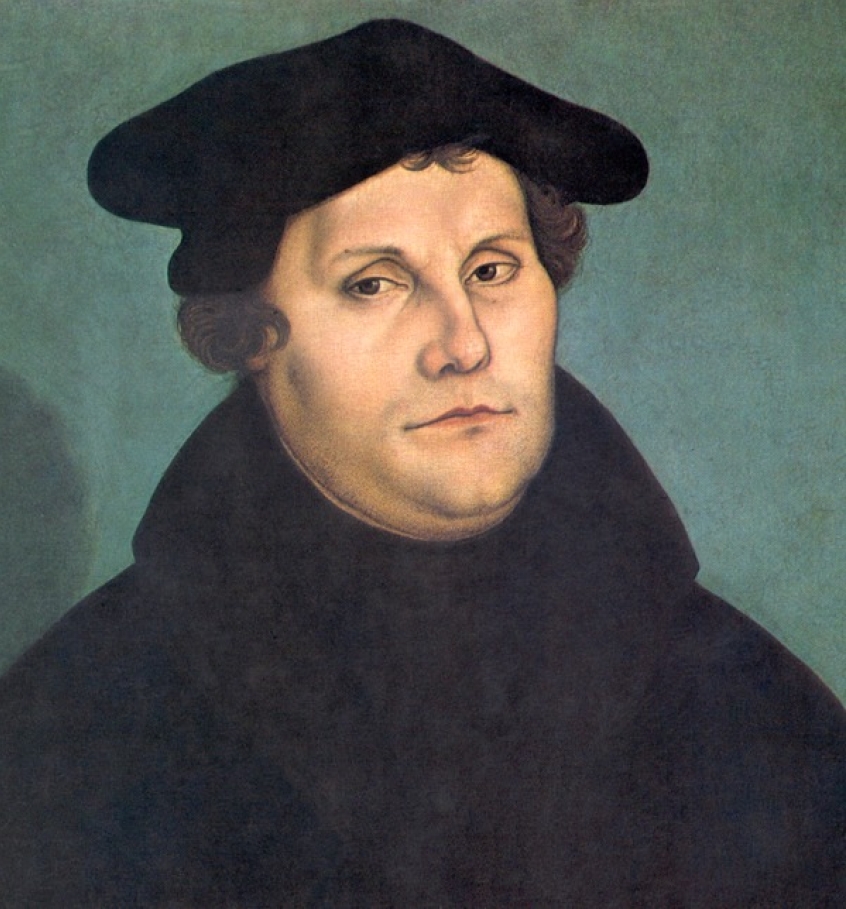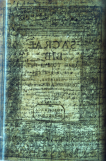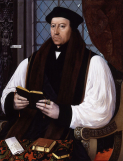
The Protestant Church in the Netherlands has denounced the antisemitic teachings of one of its founders, Martin Luther. The Church says it "absolutely disagrees" with Luther's antisemitism, and that it is reflective of the "dark pages" in Lutheran history.
It might come as a surprise to some that Luther was antisemitic at all. He's known for the doctrine of salvation by faith alone. He is the lonely hero who stood up against the might of the Roman Catholic Church at a time when it was very dangerous to do so.
Luther was a key figure in the development of Protestantism. On October 31, 1517, he nailed his 95 Theses attacking the theological and financial corruption of the Roman Catholic Church to the door of the church in Wittenburg. It marked the beginning of the Reformation and will be celebrated throughout the world next year.
But the charges of antisemitism are absolutely true. In his book On the Jews and their Lies, he describes Jews as "venomous beasts, vipers, disgusting scum" and "devils incarnate". He called for their them to be expelled from their homes, saying: "Their private houses must be destroyed and devastated, they could be lodged in stables. Let the magistrates burn their synagogues and let whatever escapes be covered with sand and mud. Let them be forced to work, and if this avails nothing, we will be compelled to expel them like dogs in order not to expose ourselves to incurring divine wrath and eternal damnation from the Jews and their lies."
Luther's influence on German antisemitism has been much debated, with some historians arguing that On the Jews and their Lies was largely forgotten until the Nazis rediscovered it. Most, however, agree that while it wasn't the sole cause of Nazi antisemitism, it underpinned a centuries-long hostility towards Jews that made their evil possible. Futhermore, the Nazis appealed explicitly to Luther's example: On the Jews and their Lies was displayed during the Nuremberg rallies and the city of Nuremberg presented a first edition to the Nazi propagandist Julius Streicher.
In their rejection of Luther's antisemitism Dutch Protestants are following the lead of Germany's Lutherans. Last November the Evangelical Church in Germany issued a statement saying: "We do not close our eyes to the mistakes made by the Reformers and Reformation churches and their involvement in guilt."

It continued: "The Reformers operated within a tradition of anti-Judaic thought patterns, the roots of which reached back to the early Church...In the lead-up to the Reformation anniversary we cannot bypass this history of guilt. The fact that Luther's anti-Judaic recommendations later in life were a source for Nazi antisemitism is a further burden weighing on the Protestant churches in Germany."
Its reference to the early Church is instructive, too. St John Chrysostom, 'John of the Golden Mouth', revered for his spirituality and preaching, wrote his Against the Jews because he was fearful that Christians were too tolerant and were blurring the distinction between the two faiths. He denied that Jews worshipped God, said they were "fit for slaughter" and that their synagogues were the abode of demons. St Jerome claimed that "the ceremonies of the Jews are harmful and deadly to Christians" and identified them with Judas Iscariot, claiming that his guilt had descended to all of them.
This sort of language helped shape Christian attitudes to Jews for centuries. On the other hand, it was not universally used or accepted. Bernard of Clairvaux (1090-1153) said: "For us the Jews are Scripture's living words, because they remind us of what Our Lord suffered. They are not to be persecuted, killed, or even put to flight." The official policy of the Catholic Church for many centuries was the Sicut Judaeis (Constitution for the Jews) issued in 1120. It forbade Christians to coerce Jews to convert, or to harm or steal from them, or to interfere with their cemeteries.
Antisemitism grew increasingly virulent in Europe in the Middle Ages, hitting a high point in the Spain of Ferdinand and Isabella in the late 1400s. But even when the fires of religious persecution died down, there was an enduring and pervasive suspicion of a people who were seen as somehow 'other', not fitting in to the Christian world.
Luther was fascinated by them, but – like many before him – he was adamant that their only hope was conversion. In his earlier years he had argued against treating them harshly, for that reason. "What Jew would consent to enter our ranks when he sees the cruelty and enmity we wreak on them – that in our behavior towards them we less resemble Christians than beasts?" he asked. He wrote in 1523 in That Jesus Christ was Born a Jew: "If I had been a Jew and had seen such dolts and blockheads govern and teach the Christian faith, I would sooner have become a hog than a Christian. They have dealt with the Jews as if they were dogs rather than human beings; they have done little else than deride them and seize their property. When they baptize them they show them nothing of Christian doctrine or life, but only subject them to popishness and monkery... If the apostles, who also were Jews, had dealt with us Gentiles as we Gentiles deal with the Jews, there would never have been a Christian among the Gentiles... When we are inclined to boast of our position [as Christians] we should remember that we are but Gentiles, while the Jews are of the lineage of Christ."
This is much more to Christians' liking today. But he turned on them when it became clear they were not going to convert no matter how well Christians treated them. Luther used his influence on German rulers to have Jews expelled from their homes. Fairness was only a means to an end; if it didn't work, brutality might.
The history of Christianity and Judaism is complex and largely – though not entirely – discreditable to Christians. Facing up to the antisemitism of some of the Christian faith's greatest heroes might be painful, but as a matter of truth and justice it has to be done. In this post-Holocaust age, no one should be able to praise Luther unreservedly without acknowledging the dark side of his teaching, and what it contributed to.



















